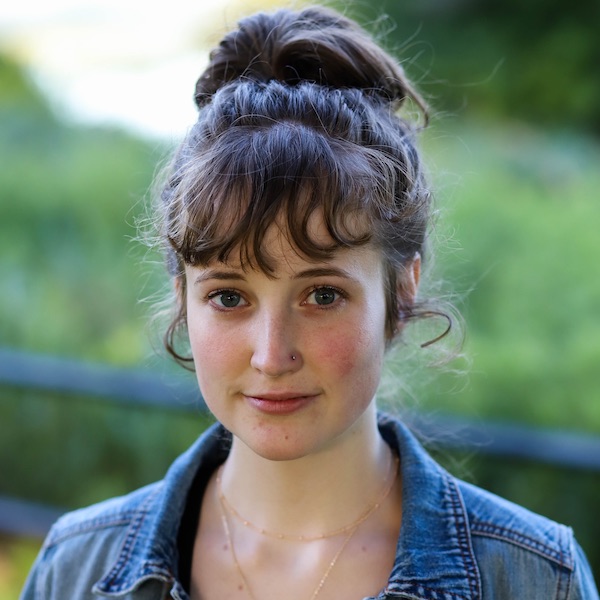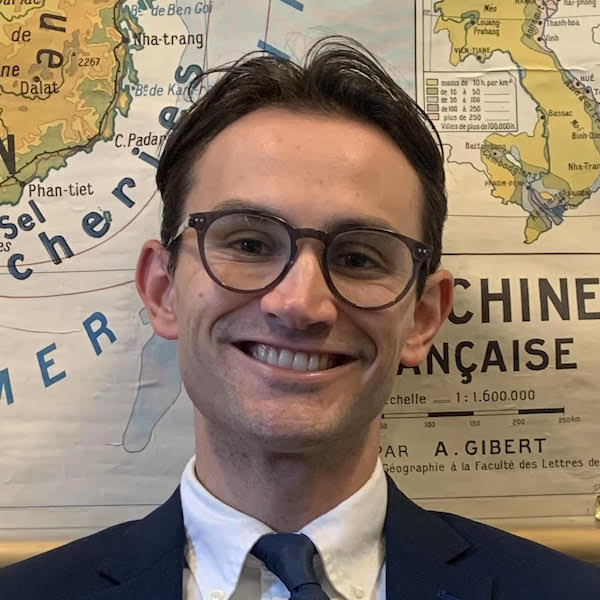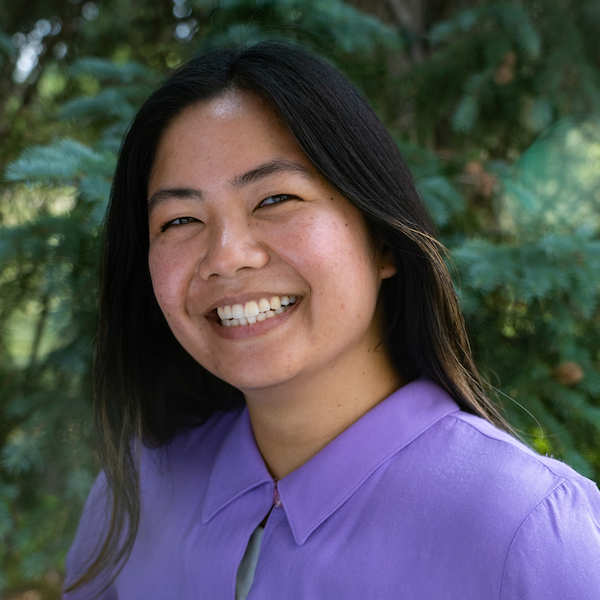Above: view overlooking the Burundian countryside. 📸: Lora Boll.
The 12th Class of Mickey Leland International Hunger Fellows have been working with their host organizations for nearly four months. Our staff hold regular check-ins with the fellows to hear about their successes, challenges, and what they’re learning about effective food security and emergency nutrition interventions. Last month we asked three of them to describe what they’ve been working on and how their project will improve food security in the community where they’ve been placed. Read on for updates from fellows working in Burundi, northern Kenya, and Zambia.

Destroyed building at a disaster relief site in Burundi. 📸: Lora Boll.
Rebuilding from Disaster in Burundi
Climate change is exacerbating the frequency and impact of natural disasters like floods, strong winds, and hailstorms in Burundi. As a result, vulnerable farmers are finding it impossible to produce food for the market and support their livelihoods. “Households will be displaced multiple times a year,” explains Leland Fellow Lora Boll. “As their crops and houses are destroyed, they rebuild, and then they will be destroyed again in the next rainy season.”
World Vision International (WVI) provides emergency disaster relief in Burundi. Using a rapid assessment tool, WVI works with local farmers to decide which responses will be the most helpful for replacing what they’ve lost—whether it’s cash transfers, building materials, household items like pots, pans, and mosquito nets, or school supplies. Lora has completed intensive disaster relief management training with WVI and is collaborating with their food assistance and disaster relief team to redesign this tool to make it more responsive to needs of farmers.
Lora is not just helping World Vision respond to current disasters, but also looking ahead to prepare for future ones. She has updated WVI’s preparedness plan for Burundi, which outlines potential disaster scenarios and identifies key staff and non-perishable supplies to be pre-positioned to respond. She is also part of a team working with the government of Burundi to strengthen their systems that provide early warnings for storms, epidemics, and other emergencies.
“Preparedness is really important,” Lora explains. “The farmers, the way they farm now is not very climate resilient at all. There’s a big push in the country to use improved seeds and to do different soil management practices to prevent erosion and make sure that crops aren’t as easily destroyed.” This will equip farmers with the knowledge to prepare their land and crops for the weather to come.

Cattle grazing in northern Kenya. 📸: Theo Anastopoulo.
Defining the Problem in Northern Kenya
While climate change causes hail and floods in Burundi, it has also brought drought to northern Kenya and the Horn of Africa. Pastoralist communities in arid and semi-arid areas like Samburu, Isiolo, Mandera, and Turkana counties are finding that their grazing ranges have dried up and are unable to support cattle.
Catholic Relief Services (CRS) is operating in Turkana County with the Diocese of Lodwar and Action Against Hunger to address rising malnutrition. Leland Hunger Fellow Theo Anastopoulo has been supporting community health workers as they screen families for signs of malnutrition, referring children to appropriate medical programs for recovery, and sharing data with the Kenyan Ministry of Health’s information system.
Theo has also taken a few trips into the countryside to hear directly from local residents and learn what they view as important. “The challenges they face and the things that concern them the most are not necessary the things that will come up in an Integrated Phase Classification bulletin1. People who experience food insecurity aren’t wondering if 20% of households are food insecure, or if two people for every 10,000 are dying from hunger. No-one thinks in these strictly statistical terms. It’s more the lived response that I think is important, because that’s what humanizes this problem.” Theo reports seeing bare grocery store shelves in the regional capital Lodwar, and hearing about mothers unable to obtain milk to feed their children.
One theme that arises in these conversations is conflict. As drought intensifies, scarcity of natural resources such as grazing land and water increases pressure on pastoralist communities. Families are driven to adapt their cultural practices, raising goats instead of cattle, or raiding their neighbors’ herds to support themselves. “The research on the link between climate change and conflict right now is tenuous at best,” Theo explains. “There is not a strictly linear causality between the two. But that is not the case in Turkana. It’s quite obvious. I think much more research needs to be focused there so we can parse out that relationship. Because more than anywhere else in the world it’s in East Africa, specifically northern Kenya, where that causality is unfolding….we can see the importance of proper resource management and effective conflict resolution, especially in the face of intensifying climate threats.”

Erin Mercado (center) with the iDE’s MHH Team in Zambia
Equal Access to Opportunity in Zambia
iDE is an NGO focusing on eradicating poverty by supporting entrepreneurship in the Global South. Part of their current work in Zambia, supported by Leland Hunger Fellow Erin Mercado, is embedding nutrition into their existing programs that support local agriculture. Erin has worked with iDE’s nutrition coordinator to host workshops for local staff, in partnership with the Zambian Ministries of Health and Agriculture. Training topics have included Zambia’s national food policies; mother, adolescent, and young child nutrition; breast feeding and complementary feeding; and methods for safe food preservation and handling. “In rural areas preserving and processing is really important, because communities are so disconnected from any sort of market,” Erin highlights. With this knowledge women’s savings groups in rural areas can generate more income from farming and through processing and preservation of their crops. This income can then be sued to increase the diversity and nutritional value of their diets.
iDE also focuses on gendered power imbalances and social norms that exclude women and other groups from economic opportunity. “iDE is trying to understand what people need holistically to thrive and succeed in markets in their lives,” explains Erin. “We are trying to understand what women need. And we think one of the biggest barriers to economic livelihoods is menstrual health.”
All around the world, including in Zambia, strong taboos and cultural norms around menstrual health and hygiene (MHH) have significant impacts on daily life. Girls miss days of school, and women’s participation in the community and marketplace is restricted. Erin’s project in Zambia has included designing original research on menstrual health needs, developing a literature review, and working with iDE’s local nutrition coordinator to analyze the results and start brainstorming solutions. Preliminary research has shown that women and girls in rural communities have limited access to knowledge and products to support their menstrual health needs with dignity and comfort, preventing equitable access to economic opportunity.
“We don’t know what the right solution is,” reflects Erin, “but we’re tending toward some sort of distribution facilitation or market linkages for menstrual health products. Making products locally might be seen as good, but it can also be problematic with lack of standards and quality. Access to different products is hard. You’ll have to get your fleece from one town, and your snap closures from a different place, and your water filtration material only from the capital.” And even if the products are made available in urban areas, the remoteness of rural communities creates logistical challenges for distributing them there. “So finding ways to improve the reach of existing solutions, I think, is more important. And trying to improve the fragmentation in the distribution of products.”
Have questions for the fellows? Contact them through their bios below. Next month we’ll hear from fellows working in Ghana, Senegal, Tajikistan, and Uganda.
- The Integrated Food Security Phase Classification, commonly known as IPC, is a standardized scale used by the UN and other organizations to measure comparative rates of food insecurity around the world. It is often referenced in relation to declarations of emergencies or famines. [↩]




